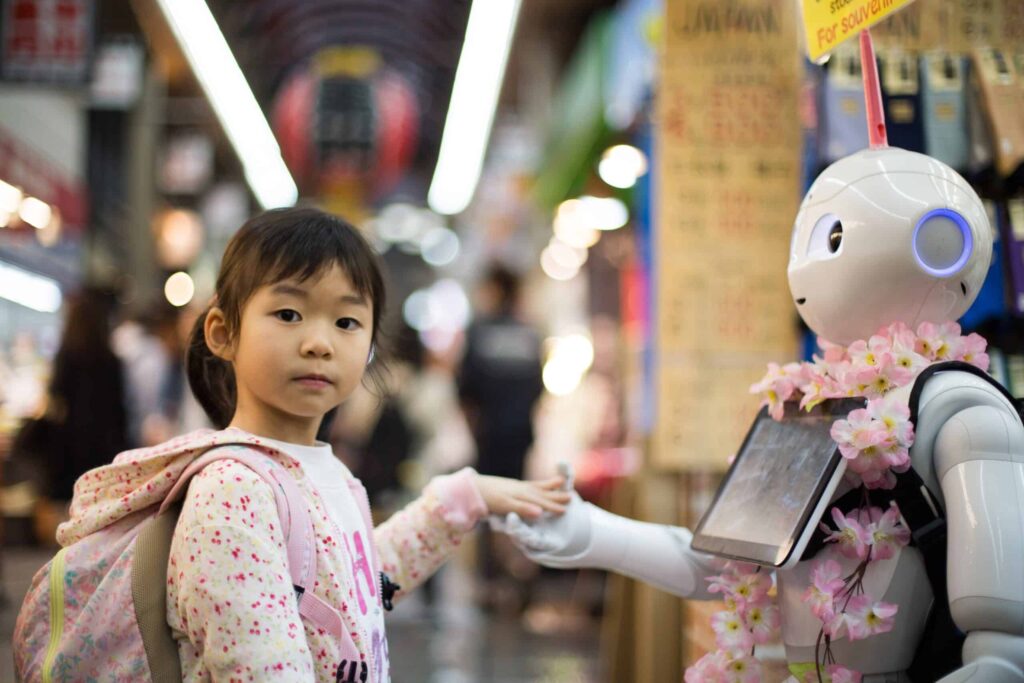Executives of health and wellness companies and organizations must keep ahead of the curve regarding Artificial Intelligence (AI). As the conversation around AI becomes increasingly prevalent, it’s clear that AI will revolutionize our lives. However, it is critical to note that AI’s constructive or destructive impact on the world is heavily influenced by the moral compass and emotional intelligence of the people who develop and utilize it.
My personal experience with AI-powered assistants, such as ChatGPT, has been transformative. AI has the power to assist us in solving problems and streamlining our daily tasks. However, it’s important to recognize that the ultimate power of AI lies in the creativity and wisdom of the person feeding the tool.
AI has the potential to revolutionize the way we live and work, providing significant advantages to society through problem-solving and streamlining tasks. However, it’s important to recognize that AI is only as effective as the humans guiding its development and use.
There is an inherent AI quandary that is analogous to the problem of people who have access to information but lack wisdom. Let me offer a personal anecdote to demonstrate this idea.
A few years ago, I assisted a young soccer coach who was having difficulty motivating his team. Despite being knowledgeable about tactics and strategies, the team wasn’t making any progress. They weren’t winning games, and the coach was becoming increasingly agitated. He would come to practice each week with well-planned, by-the-book sessions, but the players still didn’t execute on game day.
The coach approached me for guidance after the season concluded. Over coffee, I asked him if he had considered that the team’s problems might have nothing to do with soccer. What if he didn’t have all the information or knowledge to “fix” the X’s and O’s? What would he do then?
After 30 years of coaching, I understood the actual issue wasn’t a lack of data and information. It was because of a lack of emotional intelligence. According to Daniel Goleman’s article “What Makes A Leader?” in the Harvard Business Review (2004), leaders with emotional intelligence are more effective and successful than those who do not. “Every businessperson knows a story about a highly intelligent, highly skilled executive who was promoted into a leadership position only to fail at the job. And they also know a story about someone with solid—but not extraordinary—intellectual abilities and technical skills who was promoted into a similar position and then soared.”
I advised the coach to begin teaching from the heart rather than the head. When you connect emotionally with your team and teach them with empathy, they will begin to soar. They will adopt your strategies and vision and achieve success. Celebrate their small accomplishments, as US Olympic Sports Psychologist Dr. Colleen Hacken wrote, “catch them being good,” and those small victories will add up to larger victories.
This story is relevant for leaders of health and wellness brands and organizations because they too must ensure that they are incorporating emotional intelligence into their “game-winning” AI strategies. By doing so, they can assure that AI aligns with the purpose-driven nature of health and wellness brands – to have a beneficial impact on people and the world. While AI has the potential to provide significant advantages to society, it is critical to remember that it is ultimately up to humans to guide its development and use. This is especially true as we advance toward the future reality of human/technological synergy – AI-powered chips implanted in our brains are in our future. The way we “prompt” AI will determine whether or not it has a beneficial impact. We must be mindful of the consequences of our decisions and endeavor to design AI systems that serve the well-being of humanity and the world. Only through the lens of emotional intelligence can the prime movers of AI assure that it leads to human flourishing rather than human demise.
And, yes, this article was written by a human…with editing assistance from AI.
About the Author // Hardy Kalisher

Hardy’s entrepreneurial and marketing career began in the early 1990s when he launched his first businesses before graduating from the University of San Diego as an NCAA DI student-athlete with a degree in philosophy. He combined his passions for music, culture building, and business to leverage early digital marketing technologies in the hip-hop and electronic music industry from the mid-1990s to the early 2000s, earning international acclaim and recognition.
In addition to his professional accomplishments, Hardy is a soccer coach with over 30 years of experience, including serving as the Head Coach of Boulder High School Boy’s Soccer since 2006. His coaching philosophy emphasizes the positive and transformational impact of sports on youth. With three trips to the Colorado High School State Championships, winning two of them, Hardy’s team consistently ranks as one of the top high school programs in Colorado and the US. He has earned national coach of the year honors from the Positive Coaching Alliance and NHSCA.
Hardy and his wife, Kendra, who is an accomplished health and wellness leader and entrepreneur, raise three boys in Boulder, Colorado. In his free time, he enjoys skiing, hiking, and playing fetch with his two golden doodles.
